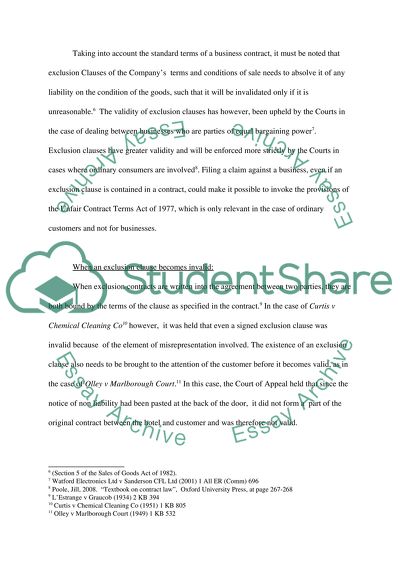Cite this document
(“Exclusion Clauses in Business Contracts Essay Example | Topics and Well Written Essays - 1750 words”, n.d.)
Retrieved from https://studentshare.org/miscellaneous/1573950-exclusion-clauses-in-business-contracts
Retrieved from https://studentshare.org/miscellaneous/1573950-exclusion-clauses-in-business-contracts
(Exclusion Clauses in Business Contracts Essay Example | Topics and Well Written Essays - 1750 Words)
https://studentshare.org/miscellaneous/1573950-exclusion-clauses-in-business-contracts.
https://studentshare.org/miscellaneous/1573950-exclusion-clauses-in-business-contracts.
“Exclusion Clauses in Business Contracts Essay Example | Topics and Well Written Essays - 1750 Words”, n.d. https://studentshare.org/miscellaneous/1573950-exclusion-clauses-in-business-contracts.


